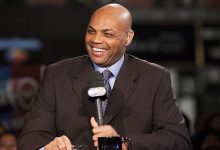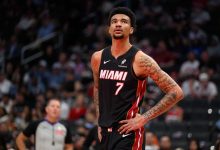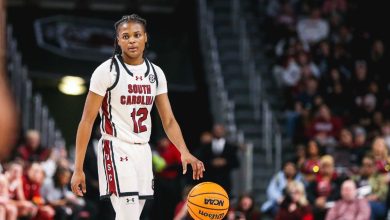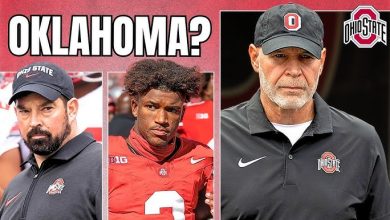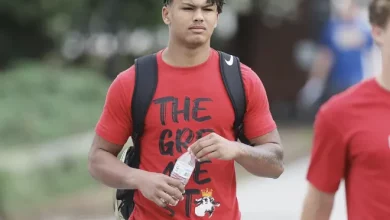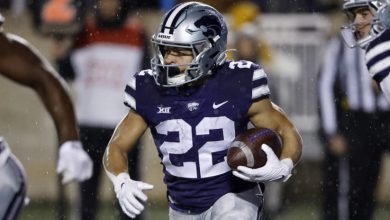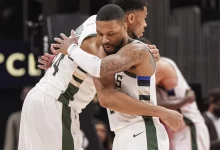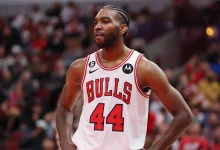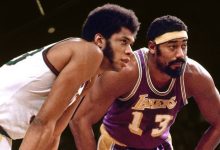Benefits and drawbacks of the Seattle Seahawks selecting Rylie Mills of Notre Dame football in the 2025 NFL Draft
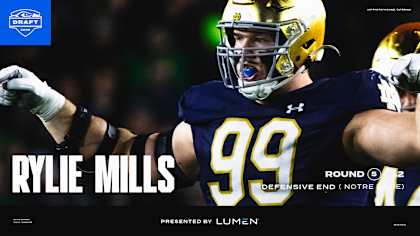
Rylie Mills, the defensive tackle from Notre Dame, is one of the more intriguing prospects in the 2025 NFL Draft. At 6’5″ and 295 pounds, Mills is a physically imposing player with the athleticism and versatility that NFL teams covet. With his combination of size, mobility, and strength, he has the potential to make a significant impact at the next level. For the Seattle Seahawks, selecting Mills in the 2025 draft would bring with it both advantages and challenges. Below are some of the key benefits and drawbacks to consider regarding this potential pick.
Benefits of Selecting Rylie Mills
1. Defensive Line Versatility
One of the biggest benefits of selecting Mills is his versatility along the defensive line. At Notre Dame, Mills played across multiple positions on the defensive front, which made him an invaluable asset to the team. His ability to line up as a 3-technique, defensive tackle, or even an edge rusher in certain situations gives Seattle’s defensive coordinator a variety of ways to utilize him.
In the Seahawks’ defense, which often employs multiple defensive fronts and utilizes a mix of 4-3 and 3-4 looks, Mills’ flexibility is a huge advantage. His ability to play inside and out allows Seattle to maximize matchups against opposing offenses. As a result, they could deploy Mills in a way that creates mismatches, particularly on third downs, where he can be used in pass-rushing situations or as a disruptive force in the middle of the defense.
Additionally, Mills’ athleticism gives him the capacity to drop into coverage if needed. This makes him a versatile chess piece, one that can be moved around the defensive front, keeping opposing offensive coordinators guessing. Given Seattle’s defensive scheme, which thrives on adaptability and versatility, Mills could be an immediate asset.
2. High Motor and Aggressiveness
Mills is known for his relentless work ethic and high motor on the field. He consistently plays with an intensity that doesn’t waver, no matter the score or the situation. This high level of effort is contagious and could serve as an energy boost for the entire defense. A player who consistently plays at full speed, never backing down from a challenge, is precisely the type of mentality the Seahawks want to foster.
His aggressiveness is particularly effective against the run, as he can power through offensive linemen to clog running lanes and create havoc in the backfield. Additionally, Mills’ ability to pursue plays from behind demonstrates his stamina and commitment, attributes that are particularly valuable in the NFL, where conditioning and tenacity are key to long-term success.
Given Seattle’s emphasis on playing tough, hard-nosed defense, Mills’ mentality and physicality fit perfectly with the team’s overall philosophy. His willingness to attack every play with aggression will make him a strong presence in the locker room and on the field.
3. Leadership Experience
Mills was a captain at Notre Dame, which speaks volumes about his leadership qualities. As a player who was trusted to represent the team both on and off the field, Mills is someone who can bring a sense of accountability and maturity to an NFL locker room. Leadership is especially important on the defensive side of the ball, where communication and cohesion are crucial to success.
The Seahawks, a team in transition with a relatively young roster, could benefit greatly from the type of leadership Mills brings. His experience in guiding his Notre Dame teammates through the highs and lows of the college football season will be valuable when dealing with the pressures of the NFL. With his leadership, Mills can help guide younger defensive linemen, contributing to the development of the next generation of talent within the Seahawks organization.
4. Potential for Development
Rylie Mills’ ceiling is still high, despite some inconsistencies in his play. He has the raw physical tools necessary to excel in the NFL: size, speed, and power. His ceiling is especially high in terms of his pass-rushing ability. While Mills has not yet fully developed a refined set of pass-rush moves, he has shown glimpses of potential that suggest, with the right coaching, he could become a disruptive force on passing downs.
Seattle’s coaching staff, led by defensive coordinator Clint Hurtt, is known for their ability to develop defensive talent. Mills would benefit greatly from Hurtt’s expertise and experience working with defensive linemen. The Seahawks have successfully developed defensive linemen like Frank Clark and others into key contributors, and they could do the same with Mills. His natural athleticism and work ethic give him a foundation to improve in areas like technique, hand placement, and pass-rush moves.
If Mills can refine these aspects of his game, he has the potential to evolve into a top-tier defensive lineman capable of dominating both in the run game and as a pass rusher.
Drawbacks of Selecting Rylie Mills
1. Recovery from Knee Injury
One of the most significant drawbacks to selecting Rylie Mills is the uncertainty surrounding his health. In late 2024, Mills suffered a season-ending knee injury that put a damper on his final year at Notre Dame. Although reports suggest that he is recovering well, the timing of this injury raises concerns about his ability to perform immediately at the NFL level.
Knee injuries are always a concern for players who rely on their explosiveness and agility, especially defensive linemen who must change direction rapidly and fight through offensive linemen. While Mills has shown resilience and the ability to recover quickly in the past, there is still a risk that his injury could affect his performance, particularly in his first season.
For the Seahawks, investing a high draft pick in a player who may need time to fully recover from an injury is a risk. Seattle would need to carefully monitor Mills’ rehabilitation and determine if he is ready to contribute immediately, or if he will need to be eased into action.
2. Inconsistent Play Strength
Mills’ biggest question mark as a prospect is his play strength. While he has the physical build to dominate at the next level, there are moments in his game where his strength is not as consistent as it needs to be. At times, Mills struggles to disengage from offensive linemen, which limits his ability to make plays in both the run game and as a pass rusher.
While Mills possesses the necessary size to overpower blockers, his technique and consistency in hand placement often fail to match up with his physical attributes. For a player who will face much stronger and more technically refined offensive linemen in the NFL, improving his play strength will be critical. If he doesn’t improve in this area, it could severely limit his effectiveness, particularly when matched up against stronger offensive linemen in the NFL.
For the Seahawks, who play in a division with some of the best offensive lines in the NFL, this is a critical flaw that could prevent Mills from having an immediate impact.
3. Limited Pass Rush Arsenal
While Mills has shown some promise as a pass rusher, his pass-rush skills are still developing. He lacks a refined set of moves and will need to work hard to become a more consistent threat against quarterbacks. In today’s NFL, where a strong pass rush is often the key to defensive success, Mills will need to develop more pass-rush variety to succeed at the next level.
Without a well-rounded pass-rush plan, Mills may struggle to consistently generate pressure in passing situations. This could reduce his effectiveness in obvious passing downs, where the Seahawks would ideally want him on the field to create disruption in the backfield.
4. Playing Upright and Balance Issues
Mills occasionally struggles with playing too upright, which can compromise his leverage and effectiveness against blockers. When he stands too tall, he loses some of his power and can be overpowered by more technically sound offensive linemen. This issue has been noted by scouts, and it will need to be addressed in his development.
Seattle’s defensive line coaches will need to work with Mills to correct his posture and improve his ability to engage blockers effectively. If he does not adjust this aspect of his game, it could limit his ability to dominate at the NFL level.
Selecting Rylie Mills in the 2025 NFL Draft presents both significant opportunities and challenges for the Seattle Seahawks. His versatility, leadership, and potential for development are undeniable, and his aggressive playing style would bring energy to Seattle’s defense. However, the concerns surrounding his knee injury, inconsistent play strength, limited pass-rush technique, and tendency to play too upright are significant hurdles that could impact his immediate impact on the team.
Ultimately, the Seahawks must weigh the risk of drafting a player with some developmental needs against the potential upside of having a talented and versatile defensive lineman who could eventually become a cornerstone of their defense. With the right coaching and continued development, Mills could prove to be an invaluable asset for the Seahawks in the coming seasons.

